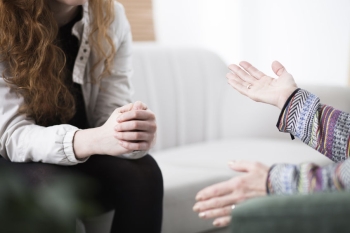
If you have finally been brave enough to admit some things in your relationship need work, should you do individual our couples counseling? Below are some things to consider as you make your decision.
The first step is to understand the difference between individual and couples. In couples counseling, your relationship, rather than the two of you, is the client. Together with your therapist, you’ll focus on understanding what’s going wrong and implementing tools to fix it. You will not get much time to focus on individual issues. If you want your partner to be “fixed” or know they are struggling with something difficult like a history of trauma, or harmful behaviors, couples counseling won’t necessarily provide the space to address those issues. Individual counseling is the place where time and energy can be spent on understanding and treating those problems. Below is a comparison of three common issues couples bring into counseling, and how they might be approached in couples counseling and in individual therapy.
| If your partner cheated on you | If your partner wants more/less sex than you | If your partner disagrees with you about having children | |
| Couples | Rebuilding trust | Creating compromise | Coming to agreement, creating a new understanding of the purpose of the relationship |
| Individual | Understanding why they cheated, and how to avoid cheating in the future | Understanding why their sex drive might be high/low, and what kind of sex they want to have | Processing the personal impact of the decision to have/not have children. |
Ask yourself - are you ready for couples counseling?
To get the most out of couples counseling, it helps to have a general baseline of emotional health. Sometimes it’s not always possible - it’s common for couples to have put off counseling until they are really in crisis. But if any of the following are true for you or your partner, it may present a barrier to couples work.
●Current substance abuse of any kind
●Out of control behaviors including physical violence
●Frequent and persistent panic attacks, PTSD symptoms, hallucinations or other symptoms that are triggered by conflict with your partner, or present to the degree that conversation would be difficult.
If you or your partner are experiencing any of the above, you may want to consider doing individual therapy first, or in addition to couples counseling.
What if my partner refuses to do any therapy?
If your partner refuses to do couples counseling, get yourself to therapy so you can have a space to process. Working with a therapist, even without your partner can give you the space and tools to truly look at the relationship and figure out what’s you, and what is outside of your control. Your partner may even come around to the idea once they see the benefits you’re experiencing.
Whether you choose to start with couples counseling or individual therapy, schedule an appointment with a therapy group such as the Center for Growth / Therapy in Philadelphia. Seeing a therapist that is part of a therapy group makes it easier to add or switch services, as your therapist can refer you and work closely with an additional couples or individual therapist.

























